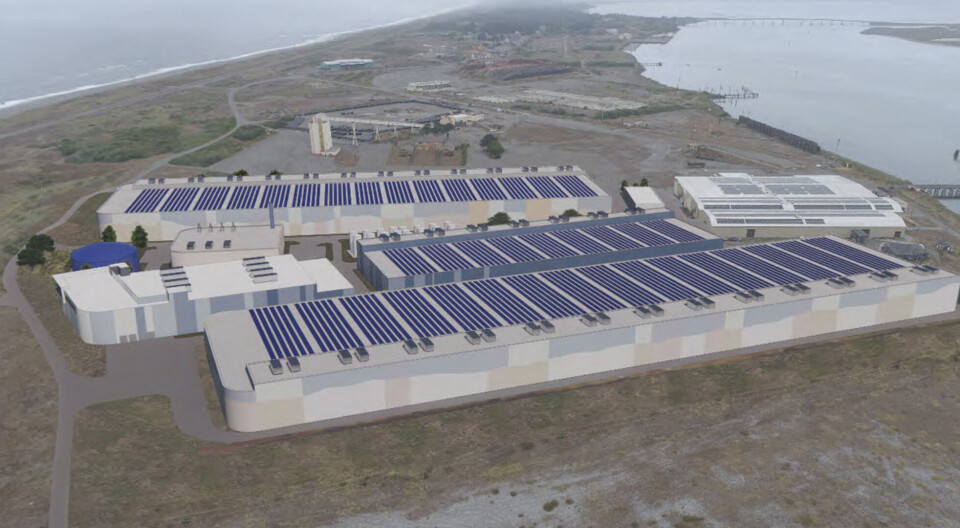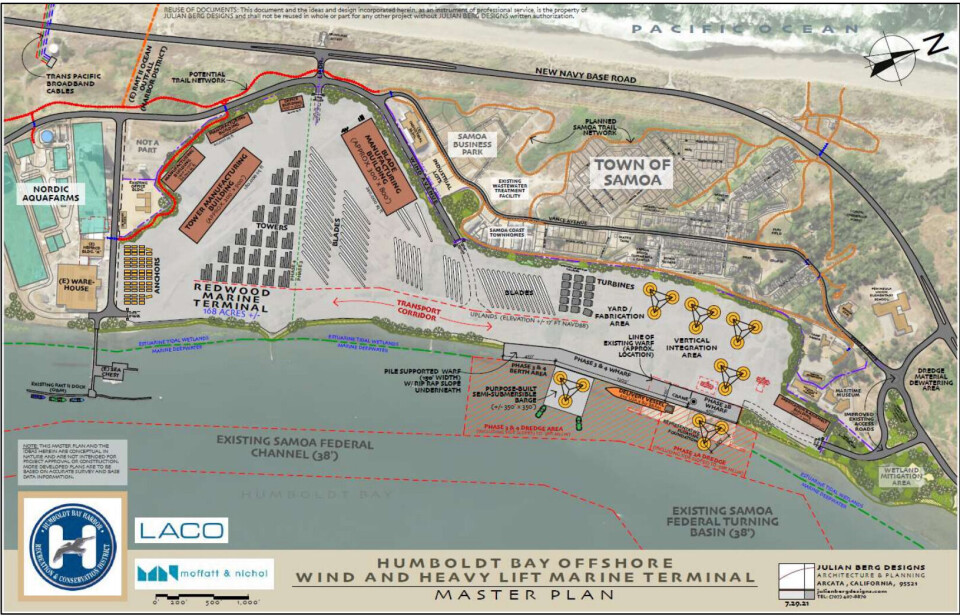
Land-based fish farmer makes progress in California
But there's another blow for Nordic Aquafarms in Maine
A seawater intake upgrade needed for a land-based fish farm in northern California has been given the go-ahead by the state’s Coastal Commission.
The decision removes one of the last remaining administrative hurdles for Nordic Aquafarms’ proposed recirculating aquaculture system (RAS) facility on the Samoa Peninsula in Humboldt County, reported Humboldt County online newspaper Lost Coast Outpost (LoCO).
Humboldt Bay Harbour, Recreation, and Conservation District – the Harbour District - is the body that applied for the upgrade.
Brownfield site
The Harbour District is supporting Norwegian-owned Nordic Aquafarms’ plan for a yellow kingfish RAS facility as part of its own ambition to create a National Marine Research and Innovation Park on its Redwood Marine Terminal II (RMT II) property, which is a brownfield site.
RMT II is on the site of a former pulp mill which used two seawater intake systems to support mill operations, but which need upgrading for future marine park tenants including Nordic.
The coastal development permit will allow the Harbour District to upgrade its seawater intake infrastructure in Humboldt Bay, install new underground water pipelines along the bay, perform a variety of environmental mitigation activities and, eventually, withdraw up to 11.8 million gallons of water per day for tenants in the marine park, LoCO wrote.
A fraction of the tide
Harbour District development director Rob Holmlund said that
was roughly 1/6,000th of the 20 billion gallons exchanged in Humboldt Bay
during each six-hour tidal cycle.
Nordic Aquafarms originally planned a 33,000-tonnes-per-year salmon RAS facility on the Samoa Peninsula but in April 2023 it changed course and is instead aiming to build a 10,000-tonnes-per-year yellowtail kingfish (Seriola lalandi) RAS in phases.
The company also intended to build a 33,000-tonnes-per-year salmon RAS facility in Belfast, Maine, but its plans were wrecked when a court ruled that it didn’t have the rights to lay pipes to the sea across intertidal land that had disputed ownership.
And earlier this week, Belfast City Council, which has until now been supportive of the RAS facility plan, voted to vacate and repeal its eminent domain (compulsory purchase) order of the land.
"Nordic Aquafarms is disappointed in the May 7 decision by the Belfast City Council. Despite this turn of events, we remain optimistic while we continue to evaluate options that are in the interests of the company as well as the local community and the broader region," the company said in a statement.
























































